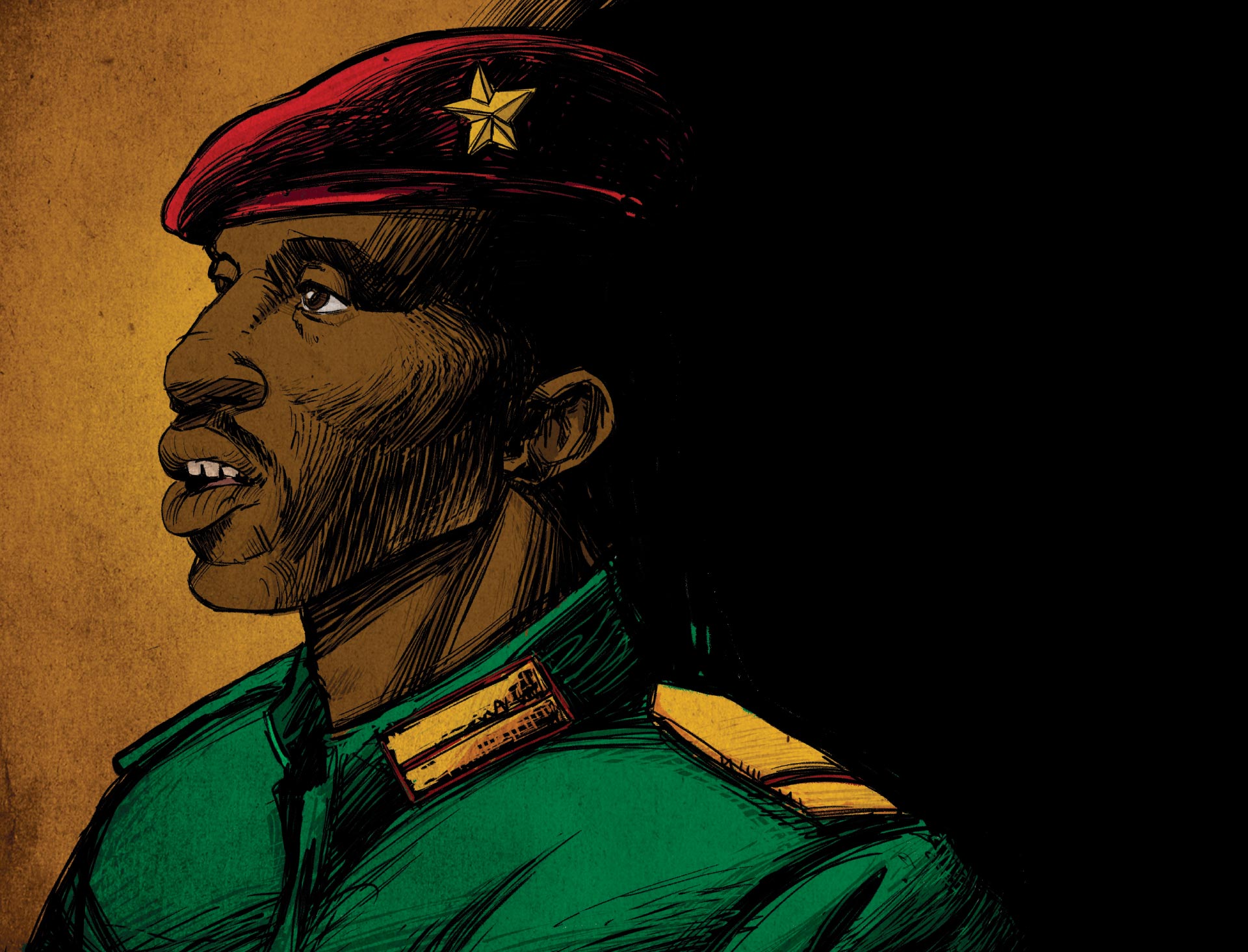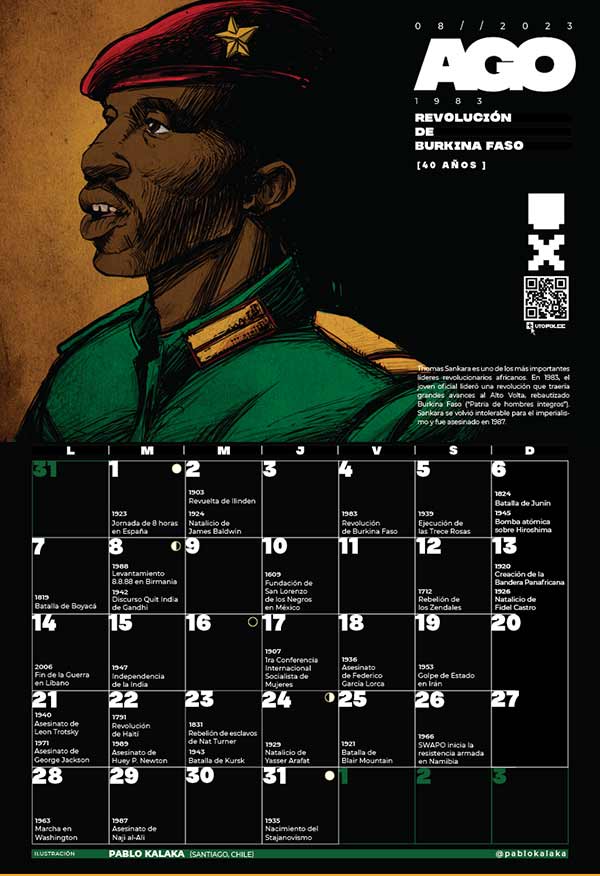ESP – ENG

In the early 1980s, the reality in the Upper Volta was far from encouraging. Although formally independent, the country was submerged in poverty, maintaining a strong dependence on the old colonizing power: France.
All that was to change in August 1983. Young officer Thomas Sankara led a revolutionary uprising that seized power and ushered in a new era for the country, immediately changing its name to Burkina Faso (“Land of the Upright People”).
Sankara and his government launched an ambitious program that would bring fast progress in areas such as education, health, infrastructure and women’s rights. The Burkinabe leader was also committed to food sovereignty, and within four years the country became virtually self-sufficient.
At the same time, Sankara insisted that the leadership should set an example by getting rid of luxurious vehicles and maintaining austere habits. There was zero tolerance for corruption. At the grassroots level, he created the Committees for the Defense of the Revolution to promote social programs and mobilize the people.
However, it was in his foreign policy that Sankara really stood out. With strong Marxist and pan-Africanist influences, his government declared itself anti-imperialist from the very start. Sankara declared Cuba as a reference and established a program of cooperation with Havana and Fidel Castro.
Sankara was becoming an increasingly uncomfortable figure for the Western powers, especially France. The revolutionary leader openly criticized the “aid” that kept African countries in poverty and dependence, and sought to build consensus for the rejection of the foreign debt imposed by the ex-colonizers and multilateral agencies.
The revolution in Burkina Faso lasted only four years. In October 1987, Blaise Compaoré, one of Sankara’s closest allies, led a coup d’état with Western support.
Sankara was viciously assassinated. Compaoré and his sponsors hoped to destroy that spark of rebellion and dignity. But Sankara’s revolutionary legacy lives on and continues to inspire struggles in Africa and around the world.

Click here to download the printable version of the calendar and hang it on your wall.
Text: Ricardo Vaz. Artwork: Kalaka.